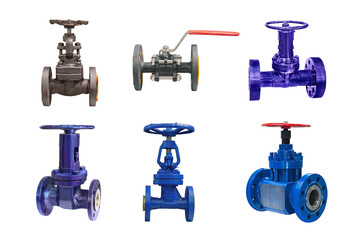Cast Steel Valves: A Durable Choice for Industries
Cast steel valves are a cornerstone of many industries, offering unmatched strength, reliability, and performance in challenging environments. These valves are integral to systems requiring precise control and long-lasting operation, making them a preferred choice for industries like oil and gas, petrochemical, water treatment, and more. Their robust design and high-quality construction allow them to endure extreme pressures and temperatures, ensuring efficient performance under demanding conditions.

What Are Cast Steel Valves?
Cast steel valves are industrial valves made by casting molten steel into molds to create strong, durable components. Known for their high tensile strength and excellent resistance to wear, these valves are ideal for applications where resilience and reliability are paramount.
Key features of cast steel valves include:
- Strength and Durability: With exceptional mechanical properties, these valves can handle high-stress environments.
- Corrosion Resistance: They are designed to resist corrosion when properly coated or alloyed.
- Versatility: Available in a variety of designs to suit different industrial needs.
Types of Cast Steel Valves
Gate Valves
Gate valves are widely used in applications requiring full flow or complete shutoff. Cast steel gate valves provide a tight seal and are ideal for handling liquids, steam, and gas.
Globe Valves
These valves are designed for throttling and regulating flow. Their sturdy cast steel construction ensures durability in high-pressure systems.
Check Valves
Cast steel check valves prevent reverse flow and protect equipment, making them essential in pipelines and critical systems.
Ball Valves
Offering quick shutoff and excellent sealing, cast steel ball valves are versatile and easy to operate.
Butterfly Valves
These lightweight yet strong valves are used for flow isolation and regulation, often in water treatment and HVAC systems.
Applications of Cast Steel Valves
Oil and Gas
Cast steel valves are indispensable in the oil and gas industry, where they manage high pressures, corrosive substances, and extreme temperatures.
Power Plants
In power generation facilities, cast steel valves play a vital role in managing steam, cooling water, and fuel systems.
Chemical Processing
The chemical industry relies on cast steel valves for their ability to handle aggressive chemicals without compromising performance.
Water Treatment
In water distribution and treatment plants, these valves provide reliable flow control and prevent contamination.
Advantages of Cast Steel Valves
- Exceptional Strength: They handle high-pressure and high-temperature conditions with ease.
- Longevity: Designed for prolonged use with minimal maintenance.
- Cost-Effectiveness: While the initial investment might be higher, their durability reduces long-term costs.
- Customizability: Available in various sizes, pressure ratings, and designs to fit specific requirements.
Material Properties of Cast Steel
High Tensile Strength
Cast steel offers superior mechanical properties compared to other materials like cast iron, ensuring reliable performance under stress.
Corrosion Resistance
When combined with alloys or coated with specific materials, cast steel valves provide excellent resistance to rust and chemical corrosion.
Heat Resistance
Their ability to withstand extreme temperatures makes them ideal for applications involving steam or hot fluids.
How to Select the Right Cast Steel Valve
Understand Your Application
Identify the specific requirements, such as pressure, temperature, and fluid type.
Check Certifications
Ensure the valve complies with international standards, such as API, ANSI, and ISO.
Consider Size and Pressure Ratings
Choose a valve with the appropriate size and pressure rating to match your system’s needs.
Review Coatings and Material Options
For corrosive environments, select valves with protective coatings or alloy compositions.
Maintenance Tips for Cast Steel Valves
Regular maintenance is key to extending the lifespan of cast steel valves. Here are some tips:
- Inspect for Wear and Tear: Regularly check for cracks, corrosion, or damage.
- Lubricate Moving Parts: Proper lubrication reduces friction and prevents wear.
- Clean and Flush: Remove debris and contaminants from the valve and pipeline system.
- Test Performance: Periodically test valves to ensure they function correctly.
Frequently Asked Questions
What is the difference between cast steel and forged steel valves?
Cast steel valves are made by pouring molten steel into molds, offering design flexibility and excellent strength. Forged steel valves, on the other hand, are shaped by compressing heated steel, providing greater density and durability.
Are cast steel valves suitable for high-temperature applications?
Yes, cast steel valves are highly resistant to extreme temperatures, making them suitable for high-temperature applications like steam lines and power plants.
How do I ensure my cast steel valves last longer?
Proper maintenance, regular inspections, and choosing the right valve for your application are critical for longevity.
What industries benefit most from cast steel valves?
Industries like oil and gas, power generation, water treatment, and chemical processing benefit significantly from the durability and versatility of cast steel valves.
Can cast steel valves be customized?
Absolutely! Many manufacturers offer customization options, including size, pressure rating, and material enhancements.
Are cast steel valves expensive?
While the upfront cost may be higher than some alternatives, their long-term durability and reliability make them cost-effective over time.
